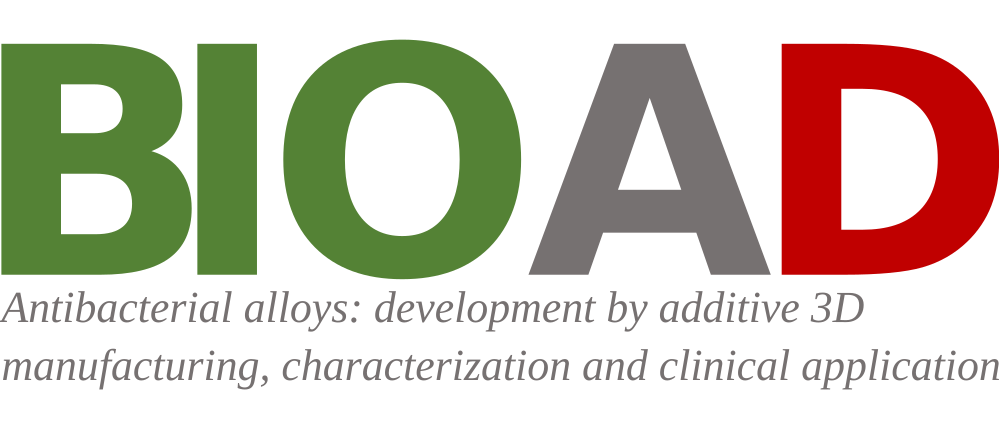Project aims
The project aims to develop a new class of metallic biomaterials for implants with inherent long-term antibacterial activity to reduce infection rates.
The scientific challenge is to produce a material with inherent antibacterial properties which do not jeopardise other biomaterial properties. Therefore, we start from the most crucial commercial material, Ti-6Al-4V alloy, and intend to add copper, a known antimicrobial agent and an essential element in the human body, to obtain Ti-6Al-4V-xCu alloys, where x is the content of copper. We use a novel technology of additive manufacturing method with different process parameters and post-treatment. The development of new materials is closely interconnected with materials characterisation and in vitro and in vivo study of antibacterial properties and biocompatibility. Scientific challenges include developing the Ti-6Al-4V-xCu alloy with optimised content of copper, appropriate microstructure, minimum porosity and defined roughness, suitable mechanical properties, high corrosion resistance, antibacterial activity against clinically relevant bacterial strains and biocompatibility. In parallel, we retrospectively analyse the rate of implant-related infection in clinical practice in the last ten years, prospectively follow infection incidence for the next three years and collect clinical samples.
